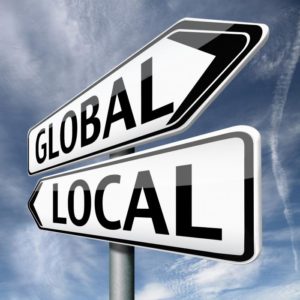 In September, TPC presented a session at the IAP2 Annual conference in Montreal to explore key issues facing the future of public participation. When everyone is connected to everyone else and opinions can be posted to the world from your phone, does anyone really care about coming together to talk about issues anymore? Do those in power really have any interest in sharing their power? Does the public truly think that they have any true voice in governance? How has the polarization of society and the deterioration of political behavior changed how we work together as communities? We sought to understand these questions from the perspective of the government agencies and consultants who conduct public participation through community outreach in a short survey looking at how the practice has changed over the past decade.
In September, TPC presented a session at the IAP2 Annual conference in Montreal to explore key issues facing the future of public participation. When everyone is connected to everyone else and opinions can be posted to the world from your phone, does anyone really care about coming together to talk about issues anymore? Do those in power really have any interest in sharing their power? Does the public truly think that they have any true voice in governance? How has the polarization of society and the deterioration of political behavior changed how we work together as communities? We sought to understand these questions from the perspective of the government agencies and consultants who conduct public participation through community outreach in a short survey looking at how the practice has changed over the past decade.
In all, we heard from 233 of our peers and we found the results more heartening than we expected. While a modest number of people, our respondents were widely representative of the agencies that engage the public, with even distribution among federal, state, and local agencies.
Rather than describing a diminished role and importance of public participation in the face of many social, political, and technological shifts, respondents noted that agencies who used public participation in the past, continue to work hard to use and promote public input in the important work of governing. While we are not blind to the challenges, this also aligns with our own community outreach experience at The Participation Company.
98.5 % of respondents to our poll agreed that public input should play an important role in decision-making and 90% say that the input they receive from the public improves their decision-making. Additionally, 75% of the respondents believed that there is more participation going on today than a decade ago, 65% said the quality of participation has improved, and 79% said that agencies are more inclined to engage citizens than before.
This does not mean that all is well; folks also noted the increase in social media trolling and political lobbying, and a decrease in civility. In fact, 79% cited polarization and public anger and 76% cited political interference as key obstacles to good participation.
So what does it all mean? We think the most important takeaway is that even when the world seems to be a place where nobody can agree or get along, the basic power of participation is still available to us and perhaps more important than ever. When we engage people during community outreach endeavors in good process, provide them with good information, and treat them with respect, we can still make meaningful, sustainable, and implementable decisions for our communities.
Author: Doug Sarno
